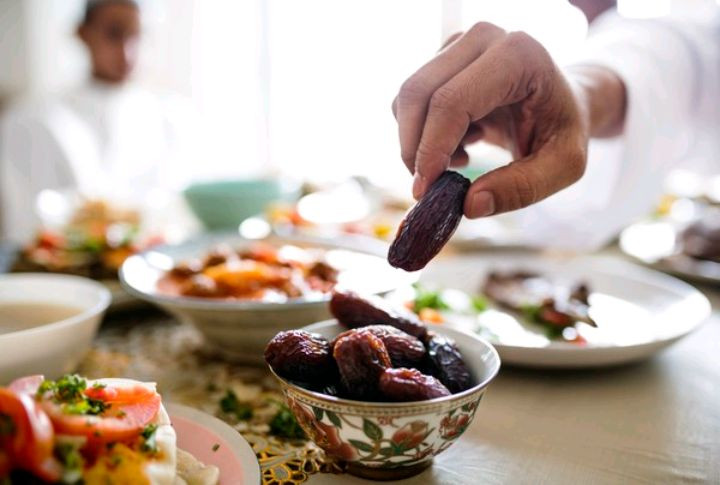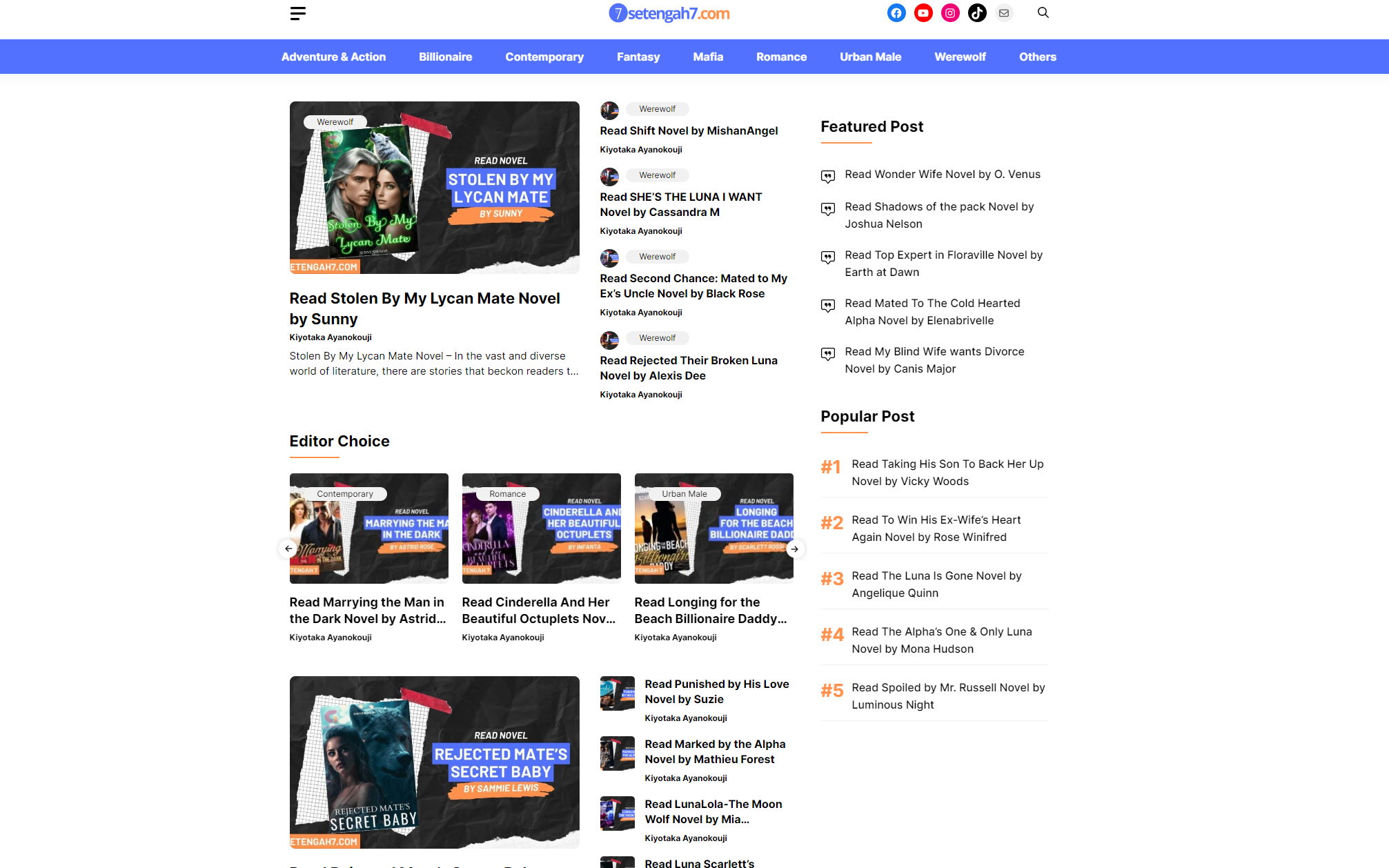Otaku vs Wibu: Apa Bedanya?
Anime dan manga telah menjadi budaya populer di Indonesia. Bahkan, anime dan manga asal Jepang telah memiliki fans yang membagi diri menjadi dua kelompok: otaku dan wibu.
Meskipun keduanya terdengar mirip, tetapi sebenarnya ada beberapa perbedaan antara otaku dan wibu. Perbedaan yang empati ini secara khusus menentukan karakteristik dan sifat masing-masing kelompok.
Otaku merujuk pada seseorang yang menghabiskan sebagian besar waktu luangnya untuk mengamati, mengoptimalkan, dan mengembangkan pengetahuan tentang hal-hal tertentu, seperti anime, manga, dan beberapa topik khusus lainnya.
Di Jepang, otaku awalnya merujuk pada penggemar sekitar Jepang yang giat, tetapi faktanya menjadi terobsesi dengan kesukaan mereka. Namun, di Indonesia, artinya diperluas untuk mencakup siapa saja yang sangat menghargai budaya populer Jepang, terutama anime dan manga.
Salah satu hal yang membedakan otaku dari wibu adalah cara mereka benar-benar mengejar dan mempelajari topik yang mereka sukai, bahkan hingga pada level yang paling dalam sekalipun. Oleh karena itu, otaku biasanya sangat berpengetahuan tentang wawasan dan informasi yang ada dalam anime, manga, dan topik yang ada di sekitar topik yang ingin mereka pelajari.
Namun, wibu memiliki arti yang sedikit berbeda. Biasanya, Wibu merujuk pada orang yang sangat menyukai game, anime, dan manga, tetapi tidak terlalu memperdulikan manga itu sendiri atau informasi mendalam tentang kultur Jepang.
Berbeda dengan otaku, wibu lebih sering mengkonsumsi anime dan manga untuk menghibur diri. Kadang kala wibu juga lebih mengutamakan penampilan luar anime dan manga pada diri mereka dengan cara berpakaian seperti tokoh favorit mereka, berfoto dan menunjukkan diri pada media sosial, serta membedakan diri mereka dari kelompok wibu lainnya dengan penampilan dan tren yang lebih ekstrim.
Kesimpulannya, meskipun otaku dan wibu sama-sama menyukai anime dan manga, tetapi ada perbedaan secara signifikan antara keduanya. Otaku terkenal sangat berpengetahuan dan mengejar wawasan mendalam tentang budaya populer Jepang, sementara wibu lebih menikmati anime dan manga sebagai hiburan yang biasa saja.
Tapi tentu saja, menjadi otaku atau wibu tergantung pada masing-masing individu dan cara mereka mengekspresikan kesukaan mereka. Sekarang tugas kamu untuk menentukan diri kamu sendiri termasuk dalam kategori otaku atau wibu?
Understanding Otaku Culture and Community in Indonesia
Otaku and wibu may sound like unfamiliar words for some people, but for those who are familiar with Japanese anime, manga, and games, these terms are something that describes their hobbies and interests. Otaku is a term used to describe someone who is obsessed with Japanese pop culture, especially anime and manga, while wibu is a term coined from the word “weeaboo” and is used to describe someone who is obsessed with not only Japanese anime and manga, but also culture, music, and language as a whole.
In Indonesia, otaku culture started to gain popularity back in the late 90s and early 2000s when Japanese anime and manga became widely available. Instead of just watching anime on television or renting VCDs, many people started to collect merchandise, cosplay, and attend anime-related events. Nowadays, otaku culture has become more mainstream and the community has grown larger with various online platforms and offline events to connect and share their hobbies and interests.
The otaku community in Indonesia can be found in various forms, from casual fans who just like to watch anime and read manga, to hardcore collectors who spend a lot of money on collecting merchandise and cosplay. There are also professional cosplayers, who make a living out of cosplaying and attending events, as well as anime artists who showcase their artwork and participate in art exhibitions. The otaku community is diverse and welcoming, with members ranging from different age groups, backgrounds, and interests.
Apart from offline events such as anime conventions and cosplay competitions, the otaku community in Indonesia also has various online platforms to connect and share their interests. There are numerous Indonesian anime forums, social media groups, and websites where fans can discuss and share their favorite anime, manga, and games with other like-minded individuals. Online communities not only connect otaku fans across Indonesia, but also allow them to connect with other fans from different countries and share their interests on a global scale.
Indonesia’s otaku community also has a significant impact on the economy, with numerous businesses catering to the otaku market such as anime merchandise stores, cosplay shops, and even maid cafes. Many anime and manga publishers also recognize the potential of the Indonesian market and have started to release their products in Indonesia, not only in the form of comics and animation, but also as novels, games, and even live-action adaptations. The otaku market in Indonesia is not only limited to Japanese pop culture, but also includes Korean and Chinese pop culture, as well as local pop culture products, indicating its potential for growth in the future.
In conclusion, Otaku and wibu culture in Indonesia not only signifies the growing popularity and influence of Japanese pop culture in the country but also showcases the diversity and creativity of the otaku community. From casual fans to hardcore collectors, from online forums to offline events, the otaku community in Indonesia offers a welcoming and inclusive environment for fans to connect and share their interests not only locally but also globally. With the otaku market’s potential for growth in Indonesia, we can expect the community to continue expanding and evolving in the future.
The Rise of Wibu Culture Among Indonesian Youth
Wibu culture, also known as otaku culture, has been on the rise in Indonesia over the past few years. This culture is characterized by the love for Japanese anime, manga, and pop culture, and the term “wibu” is derived from the Japanese word “weeaboo”, which refers to non-Japanese people who are obsessed with Japanese culture. The wibu culture has grown rapidly among Indonesian youth, and it has become a subculture that is widely accepted and celebrated. Here are some of the reasons why.
The Popularity of Japanese Anime and Manga
One of the main reasons why wibu culture has become so popular in Indonesia is the immense popularity of Japanese anime and manga. Japanese anime and manga have a large following in Indonesia, and the demand for these products has increased significantly. Anime conventions and cosplay events are also held regularly, which has helped to fuel the growth of wibu culture in Indonesia. Many young people are drawn to the unique art style of anime and manga, the relatable storylines, and the quirky characters that they represent. As a result, more and more young people have become fans of wibu culture in Indonesia.
The Influence of Social Media
Another reason why wibu culture has grown so much in Indonesia is the influence of social media. With the ever-increasing popularity of social media platforms like TikTok, Instagram, and Twitter, it has become easier for people to share their love for wibu culture with others. Many wibu communities have been formed on social media, where people can share their cosplay photos, fan arts, and other content relating to their favorite anime and manga. These online communities have played a crucial role in promoting and celebrating wibu culture in Indonesia.
The Acceptance of Wibu Culture in Society
Another reason why wibu culture has flourished in Indonesia is the acceptance of this subculture in society. In the past, being a fan of anime and manga was seen as something only “nerds” or “geeks” did, and they were often subjected to ridicule and bullying. However, with the growing popularity of wibu culture, it has become more socially acceptable for young people to express their love for anime and manga openly. This acceptance has also been reflected in the media, with anime and manga being increasingly featured in mainstream TV shows, magazines, and newspapers in Indonesia. As a result, more and more young people are now proud to be part of the wibu culture and are not ashamed to show it.
Conclusion
In conclusion, wibu culture has become increasingly popular among Indonesian youth due to the immense popularity of Japanese anime and manga and the influence of social media. The acceptance of this subculture in society has also helped to promote and celebrate wibu culture in Indonesia. With the growing interest in wibu culture, it is likely that this subculture will continue to grow and evolve, and we can expect to see more and more fans of anime and manga in Indonesia in the future.
Anime vs Manga: Which One is More Popular Among Otaku in Indonesia?
For the Indonesian otaku community, there has always been a debate on whether anime or manga is more popular. Both anime and manga have a significant influence on Indonesian otaku culture, but there is no consensus on which one is more favored. Both media types have their own unique advantages and can cater to various preferences.
Manga, being the original form of Japanese entertainment, has its own charm. It appeals to those who enjoy reading and allows for more in-depth character development. With manga, fans can enjoy stories that span for hundreds of pages, enabling them to immerse themselves in the world and characters. Manga also tends to be more readily available in Indonesia, thanks to the plethora of manga publishers in the region. As a result, fans can read manga without the need for internet access or digital devices.
On the other hand, anime has the advantage of being more accessible to the wider Indonesian public. It is easier to consume, as fans need only to watch episodes instead of reading lengthy volumes. Additionally, anime can offer more visually impressive and dynamic stories, thanks to its use of animation and sound. The soundtrack of an anime can provide a unique experience to the viewer and increase the emotional impact of a scene. Anime is also popular in Indonesia due to the abundance of streaming services, making access to various anime series much easier.
However, despite the debate between manga and anime, both are equally popular in the Indonesian otaku community. As such, Indonesian publishers often adapt both anime and manga for their audiences. Television networks frequently show anime early in the morning, while manga publishers release popular titles translated into Indonesian.
In conclusion, when it comes to anime vs manga popularity in the Indonesian otaku community, both have their own merits. Whether it be the immersion of manga or the accessibility of anime, both cater to different tastes and interests. In the end, it is not important which media type is more popular, but rather the enjoyment and appreciation fans have for the medium.
Debunking Stereotypes Surrounding Otaku and Wibu in Indonesia
When discussing Otaku and Wibu in Indonesia, it is often accompanied by negative connotations and stereotypes. Stereotypes that they are introverted, socially awkward, and even perverted. However, these are not always true. Let’s explore these stereotypes and debunk them one by one.
1. Otaku and Wibu are always introverts
This stereotype suggests that Otaku and Wibu people do not socialize and only stay at home playing games, watching anime, or reading manga. However, this is not entirely true. Many Otaku and Wibu people have a wide social circle, both online and in real life. They attend events such as anime conventions, cosplay gatherings, and fan club meetings. In these events, they can meet like-minded people and share their passion for anime, games, and manga.
2. Otaku and Wibu are socially awkward
This stereotype suggests that Otaku and Wibu people cannot communicate well with others. It is true that some Otaku and Wibu people may have limited social skills. However, this is not exclusive to them. Many people, regardless of their interests, may have a hard time interacting with others. Moreover, Otaku and Wibu people can develop their social skills through their participation in events and fan clubs.
3. Otaku and Wibu are perverted
The stereotype suggests that Otaku and Wibu people have an unhealthy obsession with sexually explicit content. It is true that some anime, games, and manga have ecchi or hentai elements. However, not all Otaku and Wibu people are interested in them. Many Otaku and Wibu people appreciate the story, characters, and artwork of anime, games, and manga. They also understand the boundary between fiction and reality.
4. Otaku and Wibu do not have a productive life
This stereotype suggests that Otaku and Wibu people do not have a career or productive hobby, wasting their time on anime, games, and manga. However, this is not true for many Otaku and Wibu people. They can turn their passion for anime, games, and manga into a productive hobby or even a career. For example, they can become a freelance illustrator, game developer, or cosplayer.
5. Otaku and Wibu only consume Japanese media
This stereotype suggests that Otaku and Wibu people are exclusively only interested in anime, games, and manga from Japan. It is true that Japan has a significant influence on the anime, games, and manga industry. However, Otaku and Wibu people can also enjoy other forms of media such as Korean dramas, American cartoons, or even local comics and games. They appreciate the story, characters, and artwork, regardless of the origin.
These stereotypes and negative connotations surrounding Otaku and Wibu people can be harmful and misleading. Otaku and Wibu people are individuals with their unique personalities, interests, and backgrounds. It is essential to respect them as fellow human beings and appreciate their passion for anime, games, and manga. Furthermore, we should avoid using these stereotypes to discredit or ridicule Otaku and Wibu people.


